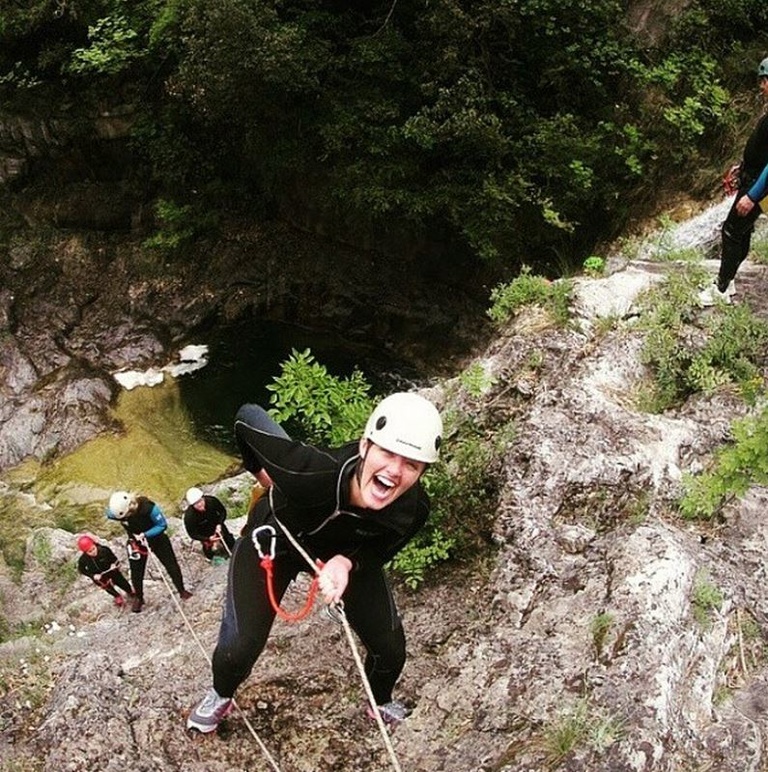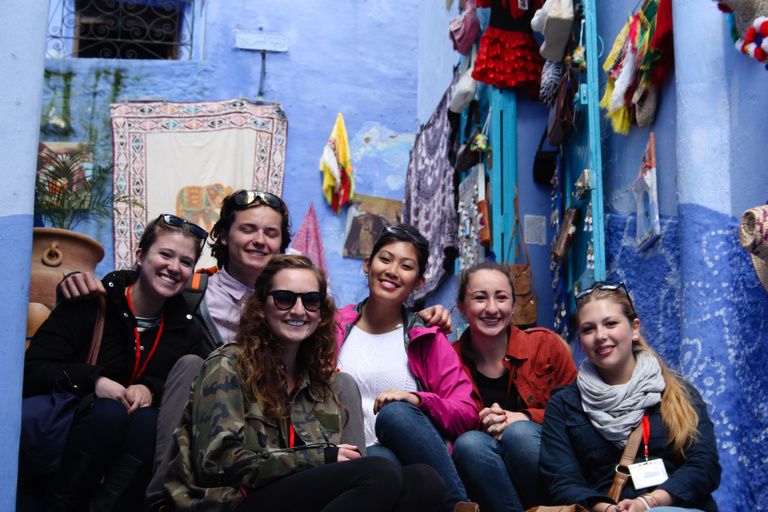By Vanessa Miller, The Gazette

Lauren Bannon climbs Mt. Olypus while studying abroad at the American College of Thessaloniki in Greece during spring 2015
'It’s not too uncommon for University of Iowa students who are studying abroad to leave temporarily or take a break due to an illness, injury or family emergency.
But rarely do students cut short their experience and not return to their program in some capacity, according to UI International Programs.
Between fall 2010 and spring 2015, the department documented only 37 of its thousands of students who left their programs early. Of those, 16 were on yearlong programs and simply decided to return home after one semester for a variety of personal reasons.
Eight of those who left early did so due to illness, three had family emergencies or events, three left in the wake of political unrest or natural disasters, two were victims of crime, two were injured, and one person died while abroad, according to statistics provided to The Gazette.
That death occurred in fall 2011 when a UI student on an outdoor adventure program slipped into a nearby river while hiking in the rain, UI officials said. And one of the two students who ended their programs early due to injury died once he was flown back to the United States.
That student — UI junior Andrew Mogni, 20 — had just started his semester in Italy when he was badly injured Jan. 14 in what authorities initially called an accidental fall. While Mogni spent months in a coma, receiving care in Rome with family by his side, Italian investigators changed their message and began considering the possibility he was attacked and injured in a robbery.
Mogni, of Glen Ellyn, Ill., on March 20 was flow back to the Chicago area, where he died.
And although the university has several levels of training, security and policies in place to keep students safe while abroad, officials said they continually look for ways to update their messaging, broaden their campus reach, and adjust international programming to ensure student safety.
“Every incident reported to us from abroad is a learning opportunity,” said Autumn Tallman, associate director of UI Study Abroad.
For example, most incidents reported to the university occur during free time, when there is not a structured program or activity taking place, she said.
“Based on this information, we have encouraged faculty leaders to plan our short-term program itineraries carefully, reducing free time or offering viable activity options to choose from during free time,” Tallman said.
UI Study Abroad officials also are retooling some aspects of their student training and trying to reach more departments across campus in hopes of creating a more organic and collaborative education around safety and security internationally, Tallman said.
“It is increasingly important for anyone who is delivering programming or services to UI students to know that approximately 20 percent of their audience will spend some of their time as a student abroad,” she said.
“Helping other offices on campus internationalize their training and programming is one very important way we can enhance the safety of students abroad.”
‘911 won’t work’
Study abroad offices typically start from scratch in educating students about how to best prevent or respond to a crisis when outside the United States.
“Something as simple and ingrained as calling 911 won’t work when you step outside the U.S.,” Tallman said.

UI students in Chefchaouen, Morocco
So the office increasingly is looking for opportunities to collaborate with other UI departments to “internationalize” their processes, and the university’s Rape Victims Advocacy Program is a prime example, Tallman said.
This fall, International Programs will be working with advocacy program staff to make sure they have current information about resources available for sexual assault survivors abroad.
Such resources include U.S. Department of State’s information on legal processes and possible referrals to confidential advocacy services familiar with international resources and processes.
“We want to make sure our local advocacy program has information about equivalent support services abroad, so they are prepared to help a student who calls from anywhere,” Tallman said.
In addition to monitoring the number of students who cut short their programs, UI International Programs tracks incidents reported to its emergency responder — regardless of whether the student had to interrupt his or her experience.
In 2013, 15 “critical” incidents were reported from among the 1,902 students who went abroad for study, research, internships, or other university purposes. Of those incidents, 14 occurred during free time, and six involved study abroad programming.
Six of the reports involved some type of illness or injury, three involved sexual misconduct, and the office took one report each of a vehicle accident, aggravated assault, “behavioral event,” civil unrest, robbery and arrest.
The incidents occurred in a total of nine countries, including five in India and three in Spain, according to the UI data.
According to information provided by UI International Programs, “A variety of factors may contribute to or exacerbate critical incidents abroad, including pre-existing medical and psychiatric conditions, fatigue, poor judgment or alcohol consumption.”
“These contributing factors are worthy of special consideration so travelers can plan ahead to reduce risk,” according to UI officials.
And the university is starting to review aggregate information from its insurance partner about cases involving study abroad students that might not have been reported to UI International Programs.
By cross-checking that information, officials can look for patterns and trends and adjust programming, Tallman said.
‘Off the beaten path’
Interest in international study among UI students has remained steady or increased slightly depending on the program or country, according to Liz Wildenberg de Hernandez, associate director of UI Study Abroad. But Europe consistently has remained among the most popular destinations, she said.

UI students "off the beaten path" on the Iceland Exchange program in Reykjavik, Iceland
In the 2013-2014 year, 65 percent of undergraduate travelers went to Europe while about 18 percent went to Asia. In 2012-2013, 59 percent went to Europe and 17 percent studied in Asia.
“A lot of students go where someone they know has gone or where they have been in the past,” Wildenberg de Hernandez said. “And a lot of the different colleges on campus are noticing increases in Asia.”
The Tippie College of Business specifically has been paying attention to China, Brazil and other up-and-coming developing nations. When looking at specific country, Italy and Spain are among the most popular, followed by the United Kingdom and India.
“There always will be students who go there,” she said. “But some are being more adventurous.”
And the university wants that.
“We like them to go off the beaten path because they can have a more genuine experience,” Wildenberg de Hernandez said. “It’s happening slowly.”
Encouraging those genuine experiences, while also keeping students safe, is part of the department’s overall mission.
“We really are trying to focus on the quality,” she said. “We hope as many as are able will study abroad, and we really are trying to make sure the programs we offer are of good quality.”